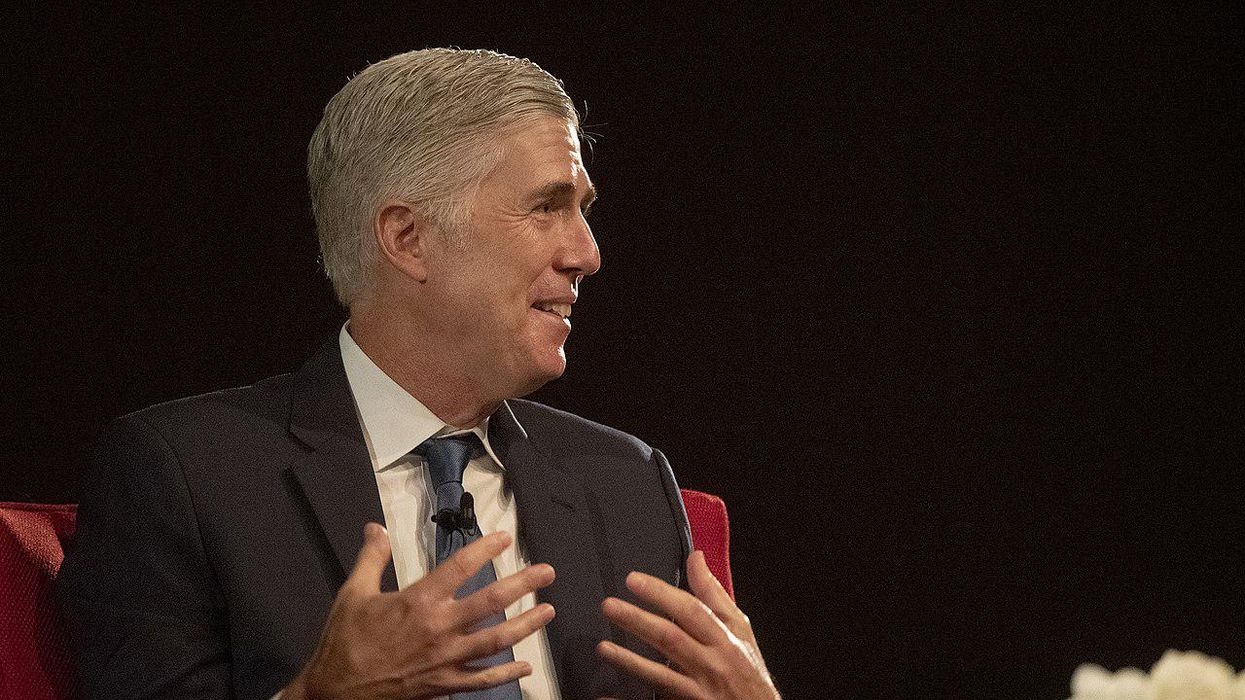In its recent decision in National Federation of Independent Business v. OSHA, the U.S. Supreme Court’s conservative majority blocked President Joe Biden’s vaccine/testing mandate — which required either COVID-19 vaccines or regular testing for employees at larger businesses. One of those conservative justices was Donald Trump appointee Neil Gorsuch, whose writing in the case is the focus of a recent article that Georgetown University law professor Anita Krishnakumar wrote for the Election Law Blog.
Krishnakumar, in her article, notes that Gorsuch’s opinion in the case is “almost entirely about the major questions doctrine” — which she describes as “a substantive policy canon that limits the delegation of power from the legislative to the executive branch.”
“Textualists and other jurists have long relied on substantive canons to tip the scales in statutory cases,” Krishnakumar explains. “So, what is truly stunning about Justice Gorsuch’s opinion is not its invocation of the major questions doctrine, but its complete lack of any accompanying textual analysis. Usually, when the justices invoke a substantive canon, they also at least attempt to analyze the statute’s text — even if only to conclude that the text is ambiguous, thereby conveniently necessitating recourse to a substantive canon. But neither Justice Gorsuch’s opinion nor the per curiam opinion in NFIB v. OSHA attempts even the pretext of such textual analysis.”
Krishnakumar goes on to cite some more reasons why she considers Gorsuch’s opinion inconsistent with a textualist approach to jurisprudence. Many conservative politicians and jurists claim to follow textualist principles because they supposedly offer a modest and restrained role for judges.
READ: Former top FBI official: 'Concerning' Ginni Thomas signed letter saying Jan. 6 participants 'have done nothing wrong'
“Most notably, Justice Gorsuch points to the inaction of the present-day Congress in the two years since the pandemic began as evidence of a lack of legislative intent to authorize OSHA or any federal agency to issue a vaccine mandate,” Krishnakumar argues. “Textualists usually deplore such uses of legislative inaction to infer statutory meaning and deny the relevance of legislative intent altogether.”
Krishnakumar wraps up her article by saying that Gorsuch wasn’t the only Supreme Court justice who abandoned textualism in NFIB v. OSHA — although he stood out the most.
“What to make of the Court’s, and especially Justice Gorsuch’s, total abandonment of textual analysis in this case?” Krishnakumar writes. “I am not cynical by nature and typically resist partisan, cynical readings of the Court’s statutory cases, but it is hard to view this case as anything other than a sign that at least in high-stakes political cases, the conservative justices on the modern Roberts Court no longer feel the need to follow a textualist or formalist approach to statutory interpretation even as a pretext to justify reaching their preferred interpretive outcomes.”


